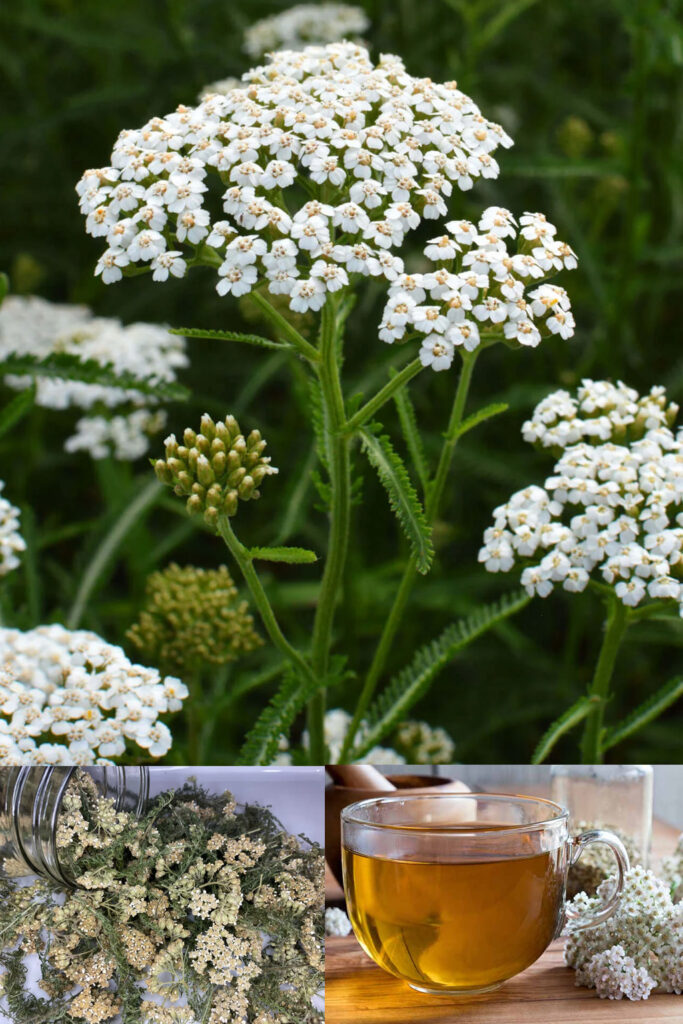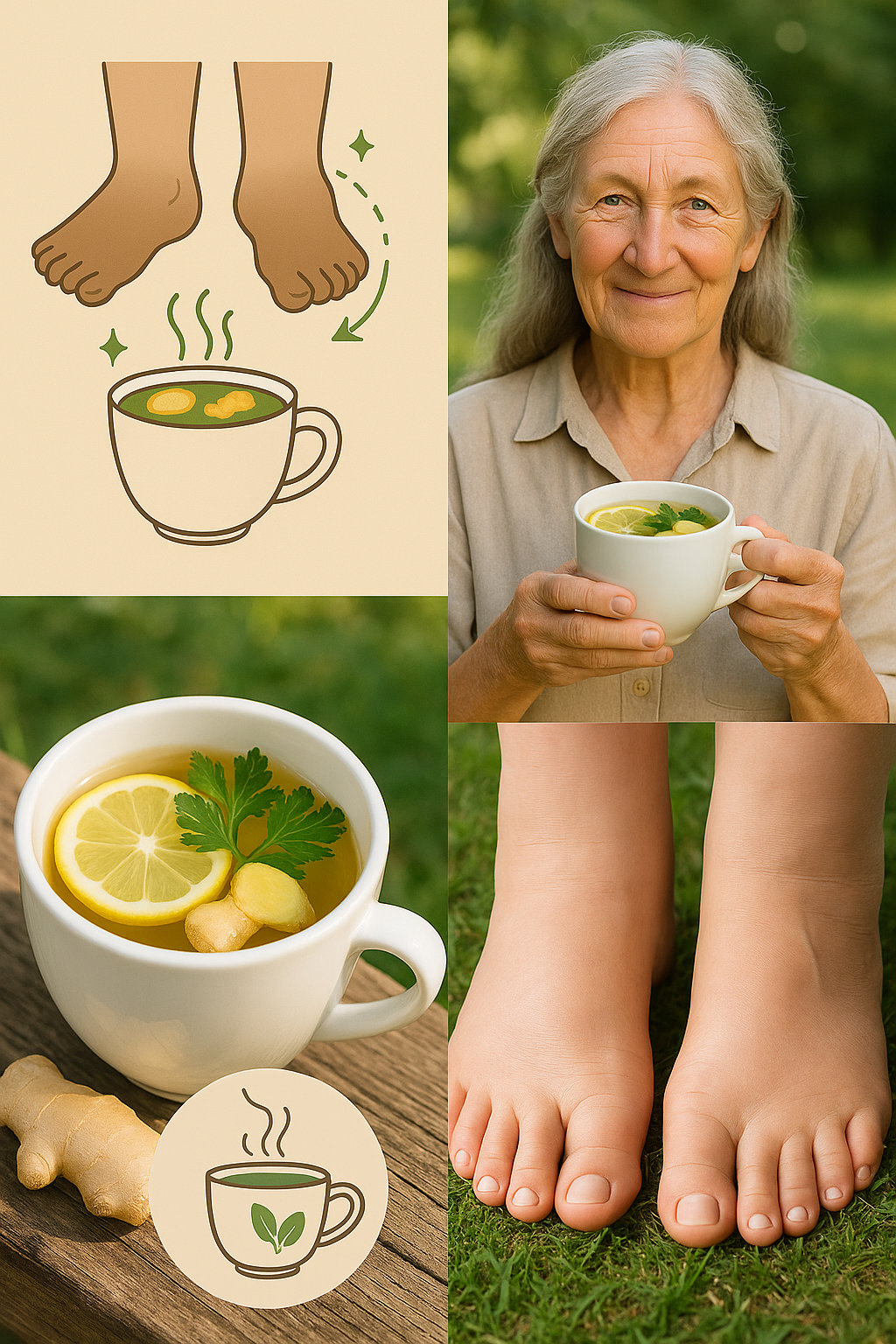
What if one of the most powerful healing plants wasn’t tucked away in a remote rainforest… but quietly growing in a field near you?
This isn’t a myth or exaggerated folk tale—it’s yarrow, a time-honored medicinal herb used across continents for thousands of years.
From ancient battlefields to modern herbal medicine cabinets, Yarrow (Achillea millefolium) has earned a lasting reputation for its ability to heal wounds, soothe pain, regulate the body, and bring balance where conventional medicine often falls short.
But how does this delicate-looking flower do so much? Let’s uncover the 15 impressive ways yarrow can benefit your body and mind—plus how to actually use it, safely and effectively, in your daily life.
🌱 15 Remarkable Health Benefits of Yarrow
1. Accelerates Wound Healing
Yarrow was once called “soldier’s woundwort” for a reason. It promotes faster clotting, reduces bleeding, and guards against infection when applied to cuts, scrapes, or bruises. Its anti-inflammatory and astringent qualities help tissues regenerate naturally.
2. Eases Digestive Discomfort
Yarrow stimulates bile flow and soothes intestinal spasms, making it an effective natural remedy for bloating, indigestion, gas, and stomach cramps. It’s a gentle yet effective aid for sluggish digestion.
3. Relieves Menstrual Cramps
Thanks to its antispasmodic and hormone-balancing actions, yarrow has been a go-to herb for women managing painful periods. It eases uterine cramping and may help regulate heavy or irregular cycles over time.
4. Reduces Fevers Naturally
Yarrow’s diaphoretic properties help the body release heat through sweat. This makes it valuable during colds and flus, where it can help break a fever and support detoxification.
5. Calms Inflammation
Its potent mix of flavonoids and tannins gives yarrow anti-inflammatory power. Whether used internally or topically, it helps reduce joint pain, soothe irritated skin, and calm inflammation-driven conditions like arthritis.
6. Lowers High Blood Pressure
Yarrow gently dilates blood vessels, improving blood flow and reducing tension in the circulatory system. It may help lower blood pressure naturally, especially when paired with lifestyle improvements.
7. Enhances Circulation
Improved circulation doesn’t just support your heart—it also nourishes muscles, promotes detox, and supports better energy levels. Yarrow contributes by reducing blood viscosity and supporting vascular health.
8. Protects Against Infection
Its antiseptic and antimicrobial compounds make yarrow a natural disinfectant for skin injuries. When applied to wounds or burns, it creates a hostile environment for harmful microbes.
9. Clears the Respiratory System
As an expectorant, yarrow helps loosen mucus and reduce inflammation in the lungs and sinuses. It’s especially useful for bronchitis, asthma, congestion, and post-viral coughs.
10. Supports Gentle Detoxification
Yarrow’s ability to stimulate sweat and urine output makes it a powerful detox ally. It encourages the body to eliminate toxins, excess fluids, and metabolic waste without overwhelming the system.
11. Reduces Anxiety and Tension
Yarrow has calming effects on the nervous system. A warm cup of yarrow tea can soothe the mind, reduce nervous energy, and promote emotional balance—especially in stressful moments.
12. Strengthens the Immune System
Yarrow contains antioxidants that enhance immune function and protect cells from damage. Used regularly, it may help the body resist infections and recover faster from seasonal illnesses.
13. Improves Skin Health
Yarrow tones, tightens, and soothes the skin. It can reduce acne, shrink pores, calm rashes, and assist in healing eczema or minor burns. Its astringent nature also makes it ideal in natural facial rinses and masks.
14. Treats Varicose Veins
By improving circulation and reducing inflammation, yarrow may relieve pressure in blood vessels and help reduce the pain and appearance of varicose veins when applied topically or taken internally.
15. Supports Healthy Weight Management
Yarrow assists digestion, reduces water retention, and promotes metabolic balance. While it’s not a miracle herb for weight loss, it complements healthy eating and detox protocols effectively.
🍵 How to Use Yarrow Safely at Home
Yarrow Tea
Steep 1 to 2 teaspoons of dried yarrow flowers in hot water for 10 to 15 minutes. Strain and drink up to three cups daily. It’s especially effective for digestion, fever, and stress relief.
Tincture
A few drops (typically 10–15) under the tongue or diluted in water offer a concentrated dose for internal use. Ideal for managing cramps, blood pressure, or circulatory issues.
Poultice
Crush fresh yarrow leaves and flowers into a moist paste and apply directly to minor wounds, cuts, or bruises. It works best when wrapped in clean gauze and changed every few hours.
Salve or Infused Oil
Yarrow-infused oil can be applied to the skin for rashes, inflammation, and muscle soreness. You can find or make it into a salve by blending it with beeswax and other skin-soothing ingredients.
Essential Oil
Yarrow essential oil (usually blue in color) can be added to warm baths, diffused for emotional calm, or used in massage oil blends for pain relief. Always dilute before applying to the skin.
⚠️ Use with Caution
Yarrow is safe for most people when used moderately. However:
- Avoid it during pregnancy or breastfeeding
- Do not use if allergic to plants in the Asteraceae family (like chamomile, ragweed, or daisies)
- Always check with your healthcare provider before using yarrow alongside medications or chronic treatments
🌿 Final Thoughts
Yarrow isn’t just a relic from ancient herbals—it’s a practical, powerful, and versatile plant that still deserves a place in your home today. With benefits spanning from wound care and digestion to circulation, mood, and immunity, it’s easy to see why herbalists call it a “complete system support” herb.
Whether you’re sipping a warm cup of tea, applying a healing poultice, or simply admiring it in the wild, yarrow invites us to reconnect with nature’s wisdom—one leaf at a time.


